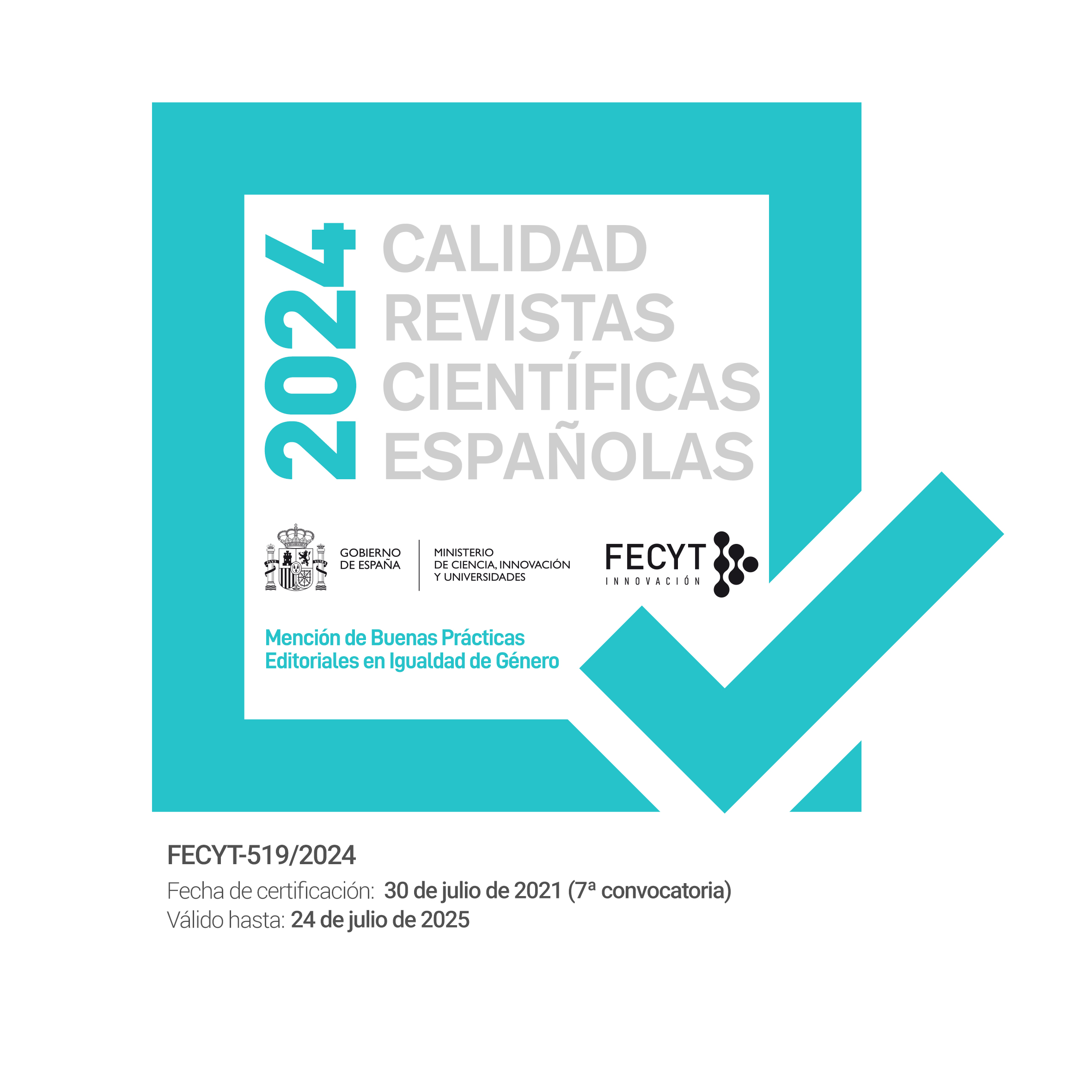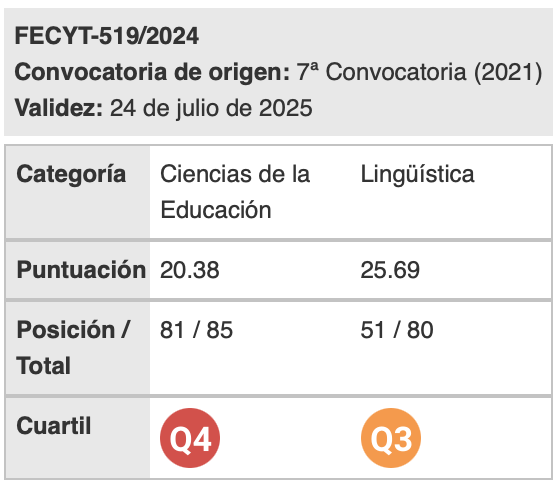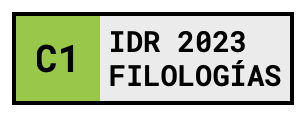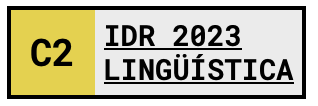Spanish vs. English mediated lectures: A contrastive approach to the use of evidential markers
Palabras clave:
evidentiality, cross-linguistic influence, source language interference, English mediated education, Tertiary EducationResumen
In the last ten years, Spanish universities have started to incorporate English as a means of instruction. As a consequence, many lecturers –who regularly use their mother tongue for their teaching activity– have adapted their syllabus contents into English, resulting in lectures that show evidence of cross-linguistic influence (Odlin, 1993). The goal of this paper is to analyze the use and distribution of evidentials in Spanish and English mediated lectures by the same teachers and to evaluate the extent to which linguistic interference is made visible when it comes to the use of evidentiality. To this aim, a corpus of three Engineering lectures delivered in English and three Engineering lectures delivered in Spanish by the same native speakers of Spanish lecturers has been used as a means of exemplification.
Descargas
Citas
Aikhenvald, A. (2004). Evidentiality. Oxford: Oxford University Press.
Anderson, Lloyd B.(1986). Evidentials, paths of change, and mental maps: Typologically regular asymmetries. In: Wallace Chafe and Johanna Nichols (eds.), Evidentiality: The Linguistic Coding of Epistemology (pp. 273-312). Norwood, NJ: Ablex.
Boye, K. (2010a) Semantic maps and the identification of cross-linguistic generic categories: Evidentiality and its relation to epistemic modality. Linguistic Discovery 8(1): 4-22.
Boye, K. (2010b) Evidence for what? Evidentiality and scope. STUF 63(4): 290-307.
Boye, K. & Harder, P. (2009). Evidentiality. Linguistic categories and grammaticalization. Functions of Language 16(1): 9-43.
Braga-Riera, J., & Maíz, C. (forthcoming). The Role of CLIL Lecturers as Translators. In S. Sebnem and L. Pérez-González (Eds.), Non-professionals Translating and Interpreting: Participatory and Engaged Perspectives. Manchester: St Jerome Publishing.
Bybee, J. (1985). Morphology: A Study of the Relation between Meaning and Form. Amsterdam: John Benjamins.
Cenoz, J., Hufeisen, B., & Jessner, U. (Eds.). (2001). Cross-Linguistic Influence in Third Language Acquisition. Clevedon: Multilingual Matters.
Chafe, W. (1986). Evidentiality in English Conversation and Academic Writing. In: W. Chafe and J. Nichols (Eds.), Evidentiality: The Linguistic Coding of Epistemology (pp. 261-272). New York: Ablex.
Chesterman, A. (1998). Contrastive Functional Analysis. Amsterdam & Philadelphia: John Benjamins.
Crystal, D. (1991). How language breaks down. English Today, 7(1), 21-28
De Haan, F. (2001). The Relation Between Modality and Evidentiality. In Müller, R. & Reis, M. (Eds.), Modälitat und Modalverben im Deutschem (pp. 201-217). Helmut Buske Verlag: Hamburg.
Kellerman, E. (1995). Crosslinguistic Influence: Transfer to Nowhere. Annual Review of Applied Linguistics, 15, 125-150.
Odlin, T. (1993). Language Transfer: Cross-linguistic Influence in Language Learning. Cambridge: Cambridge University Press.
Squartini, M.(2008). Lexical vs. Grammatical Evidentiality in French and Italian. Linguistics, 46, 917-947.
Willett, T. (1988). A Cross-linguistic Survey of the Grammaticalization of Evidentiality. Studies in Language 12, 51-97.
Young, L. (1994). University Lecturers – Macro-structure and Micro-features. In J. Flowerdew (Ed.), Academic Listening: Research Perspectives (pp. 159-176). Cambridge: Cambridge University Press.
Descargas
Publicado
Cómo citar
Número
Sección
Licencia
Aquellos autores/as que tengan publicaciones con esta revista, aceptan los términos siguientes:
- Los autores/as conservarán sus derechos de autor y garantizarán a la revista el derecho de primera publicación de su obra, el cuál estará simultáneamente sujeto a la Licencia de reconocimiento de Creative Commons que permite a terceros compartir la obra siempre que se indique su autor y su primera publicación esta revista.
- Los autores/as podrán adoptar otros acuerdos de licencia no exclusiva de distribución de la versión de la obra publicada (p. ej.: depositarla en un archivo telemático institucional o publicarla en un volumen monográfico) siempre que se indique la publicación inicial en esta revista.
- Se permite y recomienda a los autores/as difundir su obra a través de Internet (p. ej.: en archivos telemáticos institucionales o en su página web) antes y durante el proceso de envío, lo cual puede producir intercambios interesantes y aumentar las citas de la obra publicada. (Véase El efecto del acceso abierto).

Revista de Lenguas para fines específicos is licensed under a Creative Commons Reconocimiento-NoComercial-SinObraDerivada 4.0 Internacional License.






















